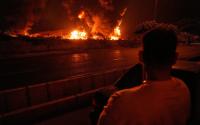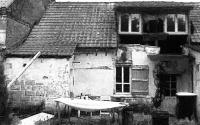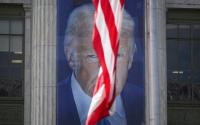War in Afghanistan Children’s perspective of the latest imperialist venture
Znet, October 21, 2001
In 1986, President Reagan bombed the city of Tripoli to teach Colonel Khaddafi, the most wanted ‘terrorist’ of that time, a lesson. Numerous civilians in residential areas, including infants and young children, were killed. A conscientious journalist, Charles Glass, went into the areas to gather information about the number of casualties. There, he found a letter from a seven-year old girl, scribbled to President Reagan. It said, “Dear President Reagan, I don't understand why you killed my sister and destroyed my doll.”
Glass tried to circulate this letter to newspapers and TV channels. He didn’t succeed. No one in the ‘free media’ of the ‘land of the free and civilized’ wanted this story. So, the world never saw any front-page story or touching TV documentary about this girl and her doll. We never got to see her smile as she talked about the good times she had when she played with her sister. And we never did see her tears as she longingly asked God to bring her sister back to her. We were never able to share her grief, even if from afar and we were certainly unable, as we still are, to answer her disturbing questions.
One wonders, how many such letters never saw the light of the day. And what those letters might have said. A Japanese girl grieving for her dead parents? A Vietnamese girl asking for her life to be spared? A hungry Iraqi boy asking for food? A Palestinian boy pleading for freedom? Who knows?
Perhaps, unlike the Libyan episode, most of these letters were never even discovered by anyone. They probably perished just like the innocent hands that must have perished soon after writing them. Here are some of those letters, which might have been. Though in their present form, they are the creation of imagination, let us be in no doubt that such letters could have been written by children and indeed, are still probably being written, in a world where ‘civilized’ people continue to deprive them of food and continue to snatch their dolls, their happiness and their innocence.
From Hiroshima, Japan by Kimuko Seidi aged 10 to President Harry Truman:
“Dear President Truman,
Please excuse my handwriting. I am so severely burned that my hands keep shaking and I can’t grab my pencil properly. I know that you are angry but please don’t drop any more atoms on us. I am at my school. The atoms have killed most of my classmates and teachers. I am waiting for a doctor but I think that most of the doctors are dead too. The pain in my legs is so stinging. I wish someone would cut them off. I can’t even see properly. Have you ever seen a boy walking on his ankles? I saw one today; he had no feet. I also saw a girl with her jaw missing and her tongue hanging out of her mouth. She was crying. I am also crying right now. I don’t want to cry. I want to laugh but I am in so much pain. Please send some American doctors.”
Little Kimuko couldn’t withstand the pain and died soon after. She was naïve therefore she didn’t know that ‘civilized’ people only send the agents of death: bombs, guns and planes. She didn’t know that they would never send doctors because they themselves had declared that they wanted her to suffer in order to make their point. Life magazine which is a prominent journal of the country that is the self-proclaimed upholder of the highest humanitarian values, showed a picture of a Japanese burning to death and commented: “This is the only way.”
She thought her innocent little letter could melt the hearts of the ‘civilized’ people in the American establishment. But she never would have written this letter had she heard what General Curtis LeMay of the US Air Force—the ‘crusaders for democracy and human rights’—had said at the time, “There is no such thing as an innocent civilian.”
The ‘civilized’ people answered her innocent plea for no more ‘atoms’ by dropping another atom bomb on Nagasaki, which killed thousands more Kimuko’s. Alas, poor Kimuko didn’t know that she wasn’t innocent for she was just a child.
From My Lai, Vietnam by Lio Trong aged 12 to President Lyndon Johnson:
“Dear President Johnson,
Please tell your soldiers to stop killing any more villagers. We are simple farmers. We have no weapons. They have just pushed thirty people into a ditch and killed them. Men, women, and children. Babies too. Mama and little Vo Thi (my 2-years old sister) are also dead. They were in our house when the soldiers set it on fire. Mama tried to get out but she was too scared by the endless firing from the machine guns. Father and I wanted to go to their help but a man in a helicopter started throwing bombs at us. We ran to hide in the fields. We watched helplessly as our house burnt down killing Mama and little sister. My father is a simple farmer. We have no weapons. Please tell your soldiers to stop. I don’t want to die…”
Soon afterwards, Lio and his father were also pushed into the ditch on the top of other corpses. An American soldier set his weapon on automatic, pointed the gun at Lio and emptied the clip into his head. A little while later, when the ditch had been completely filled with dead people, a napalm bomb was dropped on it so that nothing remained of the people inside it. Lio’s death and the deaths of hundreds of other villagers came to be known as the My Lai Massacre.
In his book Flower of the Dragon, Richard Boyle, a free-lance journalist who went to My Lai to investigate the massacre, says: “My Lai was not the act of one man. It was not the act of one platoon, or one company. It was the result of an ordered, planned and well-conducted campaign conceived at high command levels to teach a lesson to the villagers of Quang Ngai province.”
But this massacre was not an isolated incident. All throughout the war, the ‘lords of civilization’ continued to deliberately bomb schools and dispensaries and attack civilian populations, as part of the ‘pacification’ of the people. The main purpose was, as Lt. Col. William R. Corsonto, in charge of the ‘pacification’ teams, later admitted, ‘to destroy the hopes, aspirations and emotional stability of the people.’
In his foreword to the Bertrand Russell War Crimes Tribunal, Noam Chomsky writes, “From 1965 through 1969 Vietnam was subjected to about four and a half million tons by aerial bombardment. This is nine times the tonnage of bombing in the entire Pacific theatre in the Second World War, including Hiroshima and Nagasaki - over 70 tons of bombs for every square mile of Vietnam, North and South, about 500 pounds of bombs for every man, woman and child in Vietnam.”
Five hundred pounds of bombs for little Lio?! He couldn’t even have survived a bullet. But then again the civilized people didn’t just want to kill him. They wanted to make an example out of him. So that other children of the world always remembered Lio’s fate and the message behind his fate: We are the masters of the universe. Whosoever disobeys us shall be turned into powder and ash!
From Afghanistan by Dillawar Khan aged 8 to President George W. Bush:
(Written in the sand as little Dillawar has no pencils or paper)
“Dear President Bush,
I am an orphan. I have not eaten anything for four days. Before I used to get a little food but now there is none. I heard that you are angry and you have taken away my food. I am sorry if I have done anything wrong. Please give me food. I will be happy even if it’s very little. With all the bombs that are being dropped from your planes, I wonder when I may cease to exist. Perhaps it will be better if I die. At least I won’t feel the crippling hunger that is my fate at present. Give me food or give me bombs. I am waiting.”
It is not known if Dillawar is dead or alive. But it is a fact that most of Dillawar’s friends have already died due to starvation. According to a UN estimate some 7-8 million Afghanis are at risk of imminent starvation. And one of the first demands from Pakistan made by the defenders of civilization was the cutoff of food supplies. The drama of food supplies being airdropped is nothing but a hoax, an eyewash to hide their crime. It is like enticing the people to come out and pick the airdropped parcel only to get hit by the bullets and the missiles that follow such packets.
Ah! Poor Dillawar. If he dies in the bombings, his death will be labeled as ‘collateral damage’. If he dies due to starvation, perhaps ‘the price will be worth it’. Try to recall what Madeleine Albright, the former US secretary of state, when asked how she felt about the fact that half a million Iraqi children had died as a result of US economic sanctions. “We think the price is worth it.” Civilized?
Why do little Dillawar and millions of other children like him have to die? Doesn’t terrorism mean, the use of violence against ordinary civilians for some political purpose? That be the case, don’t you think the killings of Kimuko, Lio, and Dillawar and millions of other innocent children also constitute terrorism? And what about economic terrorism? When millions of hungry children are denied food due to the policies of the World Bank and IMF, isn’t that also a form of terrorism? Isn’t it also a form of terrorism when millions of children die each year of easily preventable diseases due to the greed of pharmaceutical companies?
So Dear President Bush, do you really want to combat international terrorism or is this yet another inhumane display of machismo to get your message across? Is little Dillawar innocent enough for you or are you still using the same yardstick by which you have already killed millions like him? Children of the world are waiting!






